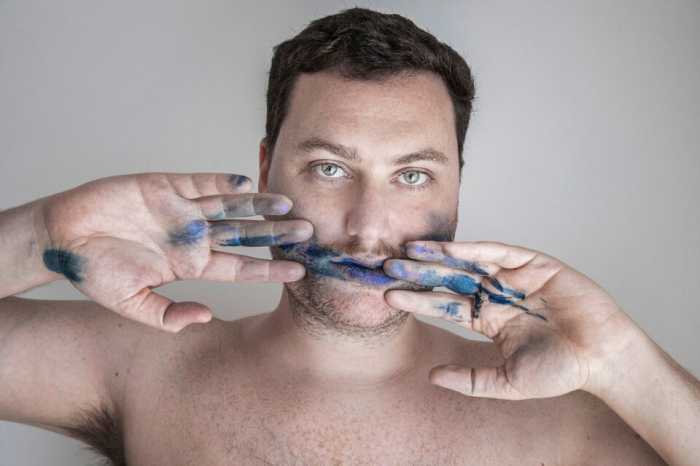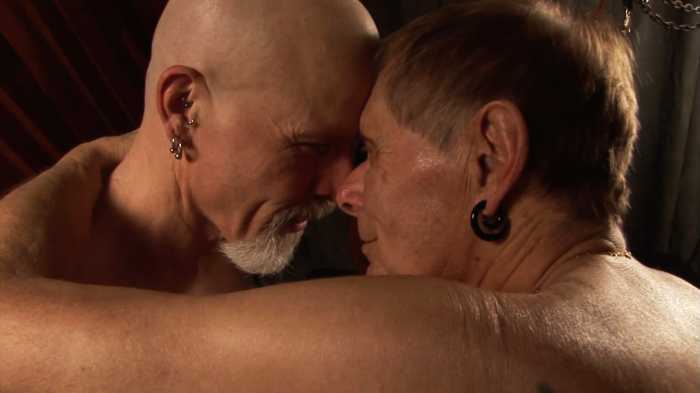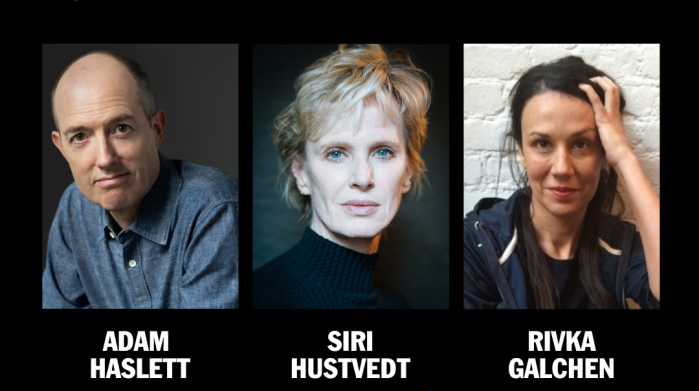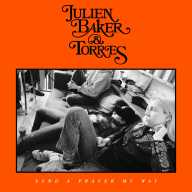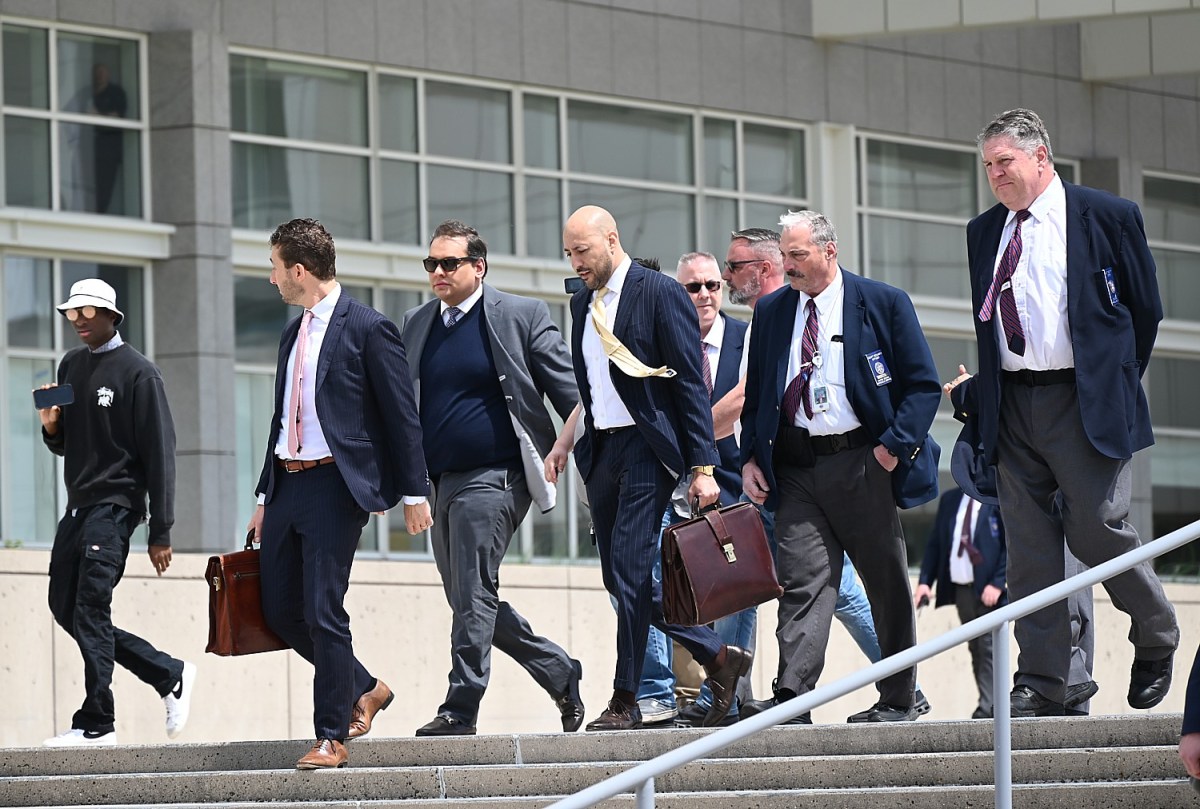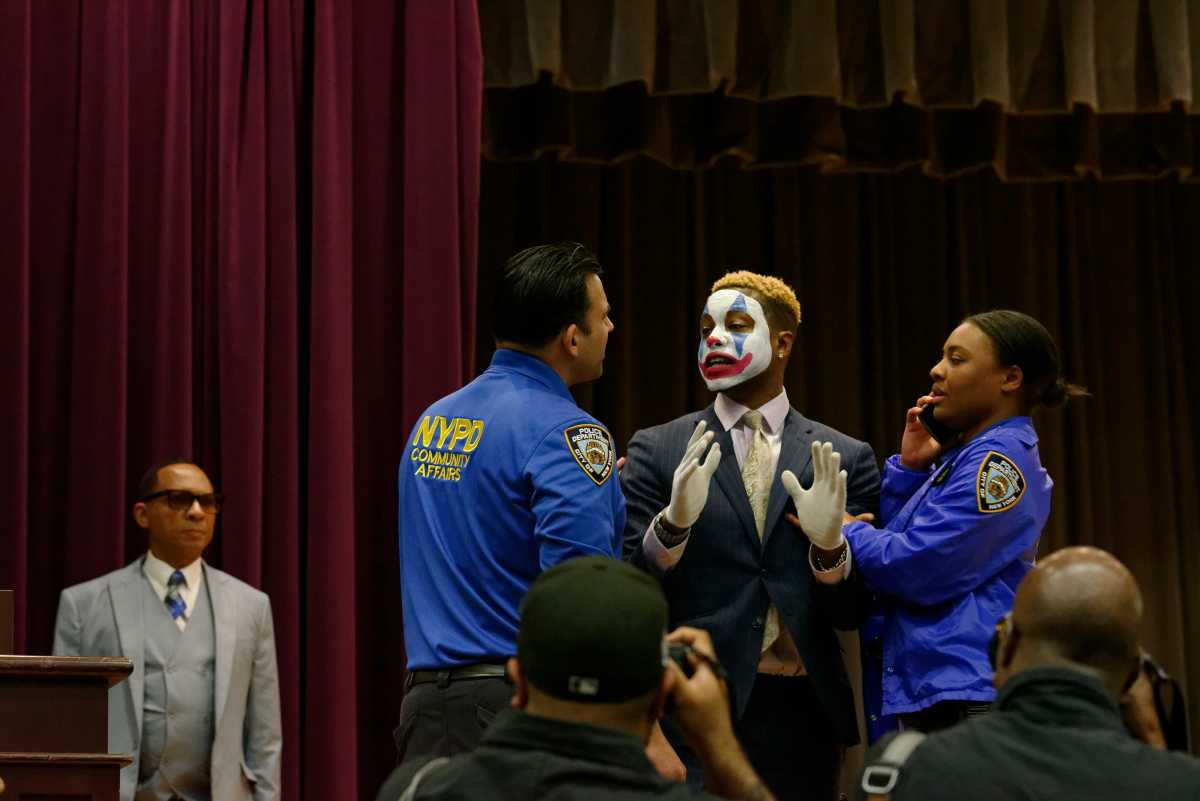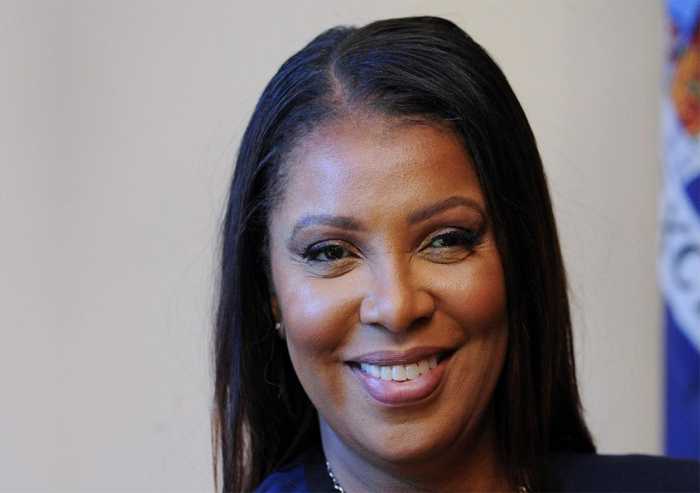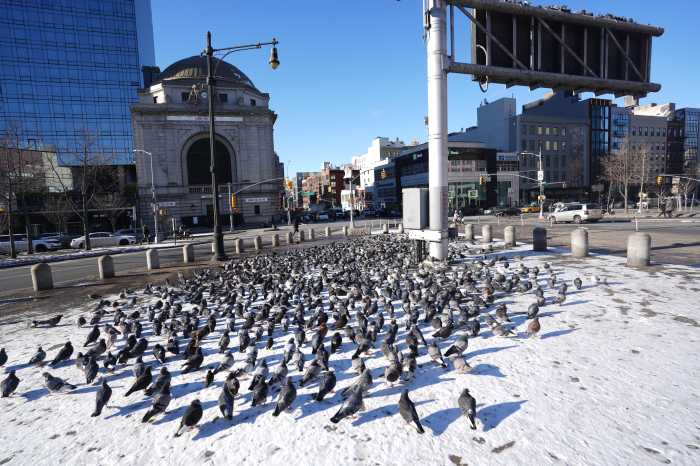Shane West's intense embrace of late Germs singer.
By: STEVE ERICKSON
WHAT WE DO IS SECRET
Directed by Rodger Grossman
Peace Arch Entertainment/Vitagraph
Opens Aug. 8
Landmark Sunshine
Germs singer Darby Crash was never famous enough to justify a VH-1 “Behind the Music” episode. All the same, his brief life included all the requisite drama: a major cult following in LA, tormented sexuality, alcohol and drug problems, all culminating in a 1980 suicide upstaged by John Lennon's near-simultaneous murder.
“What We Do Is Secret,” named after a Germs song, doesn't defy the clichés of the rock'n'roll biopic, but in a way, that's appropriate. Crash modeled his performances and lifestyle on David Bowie and Iggy Pop — and, late in his life, on Adam Ant.
Rodger Grossman's film aims for a quasi-documentary patina, opening with a scene of Crash being interviewed by Slash magazine writer Claude Bessy. Throughout, director Rodger Grossman keeps cutting back to this conversation and including “interview footage” with other characters. However, the film's rollicking humor and convincing intensity stem mostly from Shane West's committed performance, rather than such storytelling devices.
Crash (West) grew up in a single-parent home with an alcoholic mother and a junkie brother. Attending a Scientology-affiliated LA high school, he became friends with fellow outcast Pat Smear (Roger Gonzalez). In 1975, he hatches a five-year plan to become a rock star and die young.
When punk rock hits LA, Crash embraces it, forming the Germs with Smear, bassist Lorna Doom (Bijou Phillips), and drummer Don Bolles (Noah Segan). Although the band can't play their instruments at first, they gradually become hardcore punk pioneers. However, Crash's boyfriend, Rob Henley (Ashton Holmes), wants the drummer's seat for himself , and the singer's increasingly self-destructive onstage antics and heroin addiction doom their chances of reaching a wider audience.
“What We Do Is Secret” is built around concert scenes, each one summing up a phase of the Germs' evolution. At their first gig, their decision to throw flour and peanut butter at the audience is more punk than their music. Gradually, Crash develops more confidence as a vocalist, though even at his most coherent, one can't make out more than half of his lyrics.
Eventually, self-mutilation becomes a regular part of his act, as the Germs' audience grows more violent. West's performance manages something rare: conveying a singer's rise and fall through his music. The scenes of Crash stumbling around onstage and singing as though he'd just been injected with novocaine say more about his decline than the film's many loving close-ups of syringes entering flesh.
Implicitly, “What We Do Is Secret” competes with two other portraits of the Germs: Penelope Spheeris' 1981 LA punk scene documentary “The Decline of Western Civilization,” whose making it depicts, and the book “Lexicon Devil,” written by Bolles, Brendan Mullen, and Adam Parfrey. Its vision of Crash is more complex than the drunken – and supposedly heterosexual – oaf in “The Decline of Western Civilization.” However, it's fairly simplistic compared to “Lexicon Devil.” Grossman delivers a version of the Germs story that flatters the surviving members.
In “What We Do Is Secret,” Smear, Doom, and Bolles are practically drug-free. They all enjoy a beer or two, but they're hardly alcoholics. Yet, according to “Lexicon Devil,” Smear drank heavily and took acid and MDA regularly while in the Germs. His horror at Crash's use of heroin and recklessness with other drugs – exemplified by a scene where Crash decides to shoot up an unknown liquid — was real, but regarding Smear's own excesses the film offers a sanitized version.
“Lexicon Devil” conveys a sense of punk as a culture created by fans as much as musicians, while “What We Do Is Secret” revolves unquestioningly around Darby Crash. According to writer Dennis Cooper, the early LA punk scene was quite gay-friendly, but “Lexicon Devil” paints a much different picture. The gay-baiting stage antics of the LA band Fear are documented in “The Decline of Western Civilization,” and early '80s punk bands like the Angry Samoans and Descendents sang homophobic lyrics.
Many onlookers think Crash's shame about his sexuality and his inability to come out contributed to his suicide, a prospect “What We Do Is Secret” never even brings up. In fact, its depiction of his relationship with Henley is almost chaste; a spectator who knows nothing of Crash's life might think that he was also sleeping with the female manager wannabes who attached themselves to him vampirically.
Yet the film's conventional nature doesn't hamper its depiction of the LA scene. Grossman goes to the trouble of recreating a performance by the Screamers, an obscure synth-punk band who never released an album until years after their breakup. The bulk of the film's music comes from the Germs, but his use of other bands' songs is well-chosen. Alice Cooper's “You Drive Me Nervous” sums up Crash and Smear's teenage flirtations with glam-rock, while Joy Division's funereal “New Dawn Fades” serenades Crash's decline.
The supporting performances sometimes tend towards the cartoonish, but West's is never less than fully intense and real. “What We Do Is Secret” makes a bid for entering Crash into rock'n'roll mythology. In some ways, its vision of the singer may be a compromised one, but Grossman and West offer it up with gusto.

